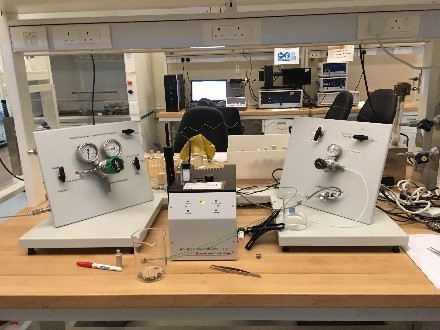Advanced Materials Lab for Clean Energy
The preparation of advanced materials with tailored properties for certain applications require careful understanding of the structure-property relationship of materials. This can be achieved by detailed characterization of material properties and finding the relation to performance. The advanced materials facilities at RICH is a multipurpose lab where materials can be synthesize and characterize for ad-hoc applications, covering not only the current areas of focus of the center, but also for other applications, including catalysis, removal of contaminants, water treatment, etc.
Some of the facilities and tools in the center related to advanced materials synthesis and characterization are listed as follows:
- Micro-reaction calorimeter
- Total Organic Carbon Analyzer (TOC)
- Sieve shaker
- Density meter
- Autoclave reactors
- Vacuum oven
- Tubular furnace
- Fourier Transform Infrared Spectroscopy

Fig. 1: Microreaction Calorimeter available at the Advanced Materials lab at RICH